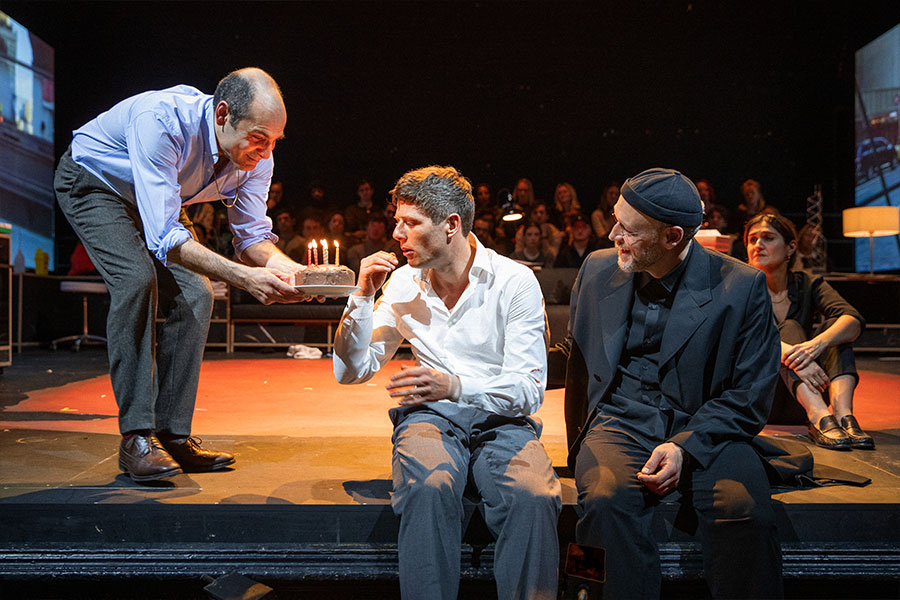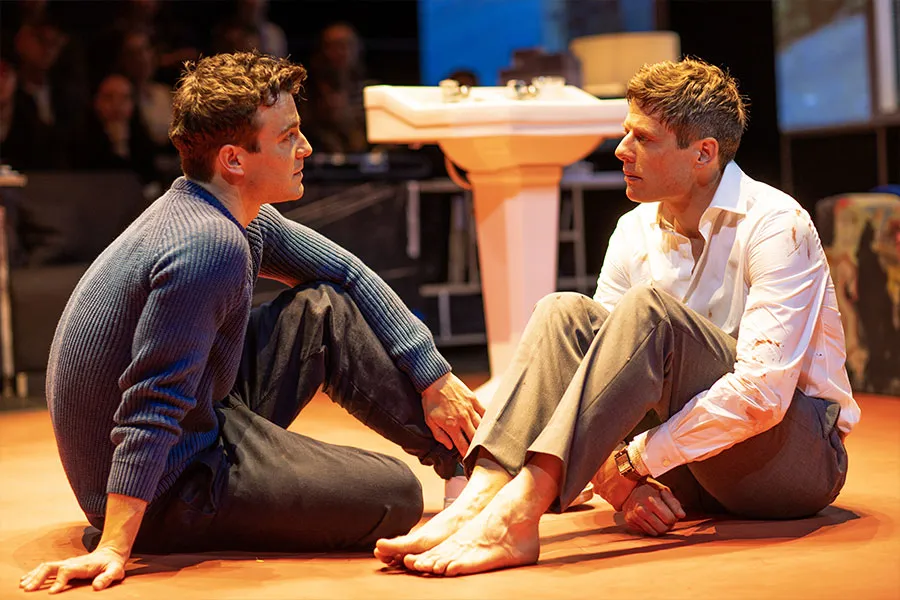A Little Life review – James Norton stars in a terrible, truthful depiction of mankind’s capacity for evil
The show plays at the Harold Pinter Theatre before transferring to the Savoy Theatre

It’s rare for a play to be a phenomenon before it even opens, but A Little Life is exactly that. The obsession and controversy surrounding the 2015 Hanya Yanagihara novel on which it is based means that people are turning up having read the 720-page tome like a bible. Others are attracted simply by the fact that James Norton of Happy Valley fame is in the lead.
Arriving, nervously, at Ivo van Hove’s three-hour 40-minute stage adaptation belonging to neither fan-base, I had no idea what to expect. But I left shaken and stirred by a production that is as involving and accurate a depiction of the long-term effects of abuse as you could expect to see – if still slightly doubtful about whether I had wanted to see it at all.
Put simply, A Little Life is the story of Jude St Francis (Norton), a New York lawyer, whose upbringing was so horrific that he cannot share any facts or feelings with his loyal and loving group of friends (an actor, a painter and an architect, played by Luke Thompson, Omari Douglas and Zach Wyatt respectively). He cannot talk to his adoptive father (benign Zubin Varla) or his social worker (Nathalie Armin) or his doctor (Emilio Doorgasingh). His only relief comes through cutting himself with a razor – something we see early and repeatedly, great gushes of stage blood covering the red floor and necessitating repeated mopping of Jan Versweyveld’s minimal living area set.

I don’t envy the audience sitting on stage, quite so close to the violence. But at some levels the descriptions of the graphic horror of van Hove’s production (of people fainting and abandoning their seats) have been exaggerated. Much of the violence is stylised – the films that run in a loop on the walls go blurry, the lights turn sickly yellow – but its imaginative impact is all the greater for its restraint.
Though we do see Jude set his hand alight, and run naked around the stage in abject terror, it is the absolute relentlessness of the trauma that is so unbearable and so upsetting. An orphaned child who experiences sexual abuse, imprisonment and the predilections of a sadist, it’s a wonder Jude even makes it to adulthood. In adapting the novel with Yanagihara and Koen Tachelet, van Hove concentrates less on the friends than on the abuse heaped on Jude himself, blending his past with his present in a series of memory loops, like the circles in which he is forced to run. Towards the end when Yanaghira heaps yet more suffering on her saintly hero, it all becomes a bit silly. No wonder the novel has been accused of being trauma porn.
On stage, where there is less room for the characters to expand, it is even more intense. What holds the attention, is the sheer potency of the performances. As Jude, described as “a magician whose sole trick is concealment”, Norton is not only committed but also subtle. Because of the structure of the piece, he has to move between sophisticated, outwardly composed New Yorker and frightened, snivelling child in the blink of an eye. He has to play agonised and concealed. He has to sing Mahler and be consumed by guilt. He does all this with absolute conviction. As the action progresses, his clothes stay bloody, as if the contents of his soul have finally been exposed, and Norton allows Jude to thaw just a little, constantly suggesting the agony beneath the gentle sheen.
He is supported by a uniformly fine cast, explaining events both to each other and to the audience. Thompson is particularly impressive as the gentle Willem whose love and care for Jude offers a glimpse of salvation. The moment when they dance together was the one moment in the show when I felt moved to tears. Elliott Cowan gives Jude’s abusers their own taste of evil – from the ingratiating Father Luke to the psychopathic Dr Traylor to the vicious Caleb.
Van Hove, who has adapted this English-language version from one that first appeared in Dutch, keeps a grip so tight that it is impossible to turn away, diving into the evil with a ferocious, propulsive power. At the close, I felt I had witnessed a terrible, truthful depiction of the ongoing effects of mankind’s capacity for cruelty. I still wondered why I would want to delve so deep, but there is no doubting the production’s power – or the belief and excellence of all the actors.












